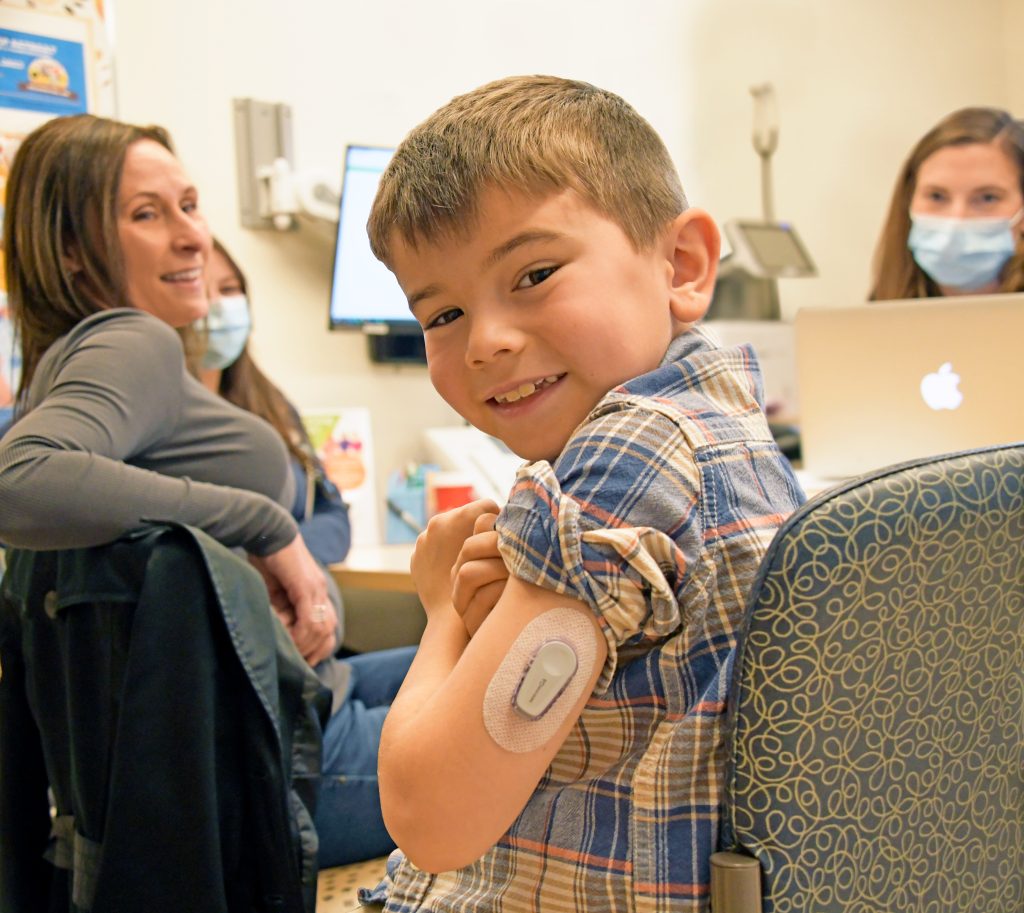As Diabetes Awareness month comes to an end, Royal Victoria Regional Health Centre (RVH) continues to support adult and paediatric patients living with Type 1, Type 2 and prediabetes year-round.
On average, the health centre’s Emergency Department sees approximately 560 annual visits related to diabetes and RVH’s Adult Diabetes Clinic cares for more than 60 patients every month.
“At RVH we see patients in many areas of the health centre living with diabetes, including the Emergency Department, Medical Imaging, on our inpatients units, visiting our outpatient clinics and those receiving cancer care,” says Leanne Weeks, RVH Vice President, Clinical and Chief Nursing Executive. “Regardless of where they are in our health centre, our teams work hard to provide the specialized care these patients require.”
Eight-year-old Bobby Munro, who is living with Type 1 diabetes, is among the 180 children, and their families, RVH’s Paediatric Diabetes Clinic supports each year.
“There is lot of misunderstanding around Type 1,” says Michelle Munro, Bobby’s mother. “The one I hear most frequently is the belief ‘they can grow out of it’ or a misconception that Type 1 and Type 2 are the same thing.”
According to Diabetes Canada, Type 1 diabetes is a life-long disease in which the pancreas does not produce any insulin, a hormone that helps control the amount of glucose or sugar in your blood. Most people with Type 1 diabetes are diagnosed in childhood and early adulthood, but it can appear at any age. Type 2 diabetes is the most common form of diabetes, making up 90 per cent of all cases. It is caused by several different risk factors that affect the body’s ability to make enough insulin or inhibits the ability to properly use the insulin that it does make.
“We often describe the difference between Type 1 and Type 2 as one being an apple, and the other is an orange,” says AJ Ouellette, RVH Registered Nurse and Certified Diabetes Educator. “Both are considered fruit and deal with sugar, but they have different processes and are managed differently.”
Caring for patients with diabetes can be a long and complex journey. RVH’s diabetes clinics include interdisciplinary teams of highly-skilled Registered Nurses, Registered Dietitians, Social Workers (paediatrics) and Physicians who help patients and their families manage medications and nutrition, offer mental health support, and provide diabetes education.
“The team at RVH has been wonderful in treating Bobby like a regular kid and not like a diabetes patient,” says Michelle. “They assist me in making decisions regarding his day-to-day care, and organize events which give us an opportunity to meet other families living with Type 1 diabetes.”
Knowing the signs and symptoms of Type 1 diabetes can help with early recognition and diagnosis, while understanding the risk factors can help with prevention of Type 2 diabetes. To learn more visit https://diabetes.ca.
Although there is no current cure for Type 1 diabetes, with proper management and a strong support team, as Bobby says, “nobody can stop you from doing the things you want to do!”
